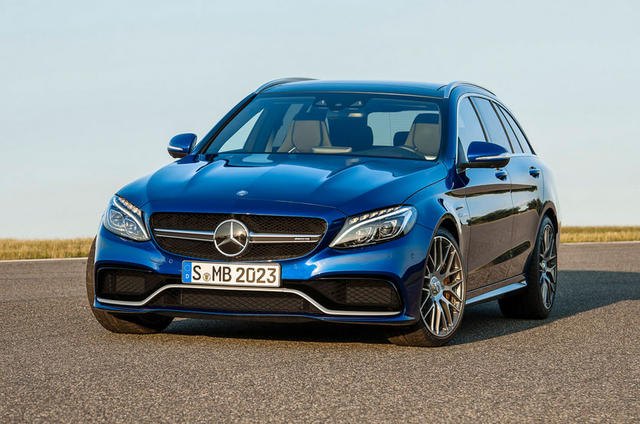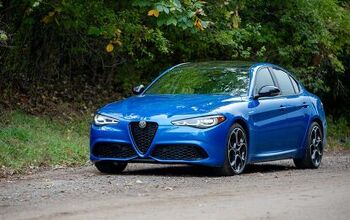German Automakers Rally In Support of US-EU Trade Agreement
Leaders from Germany’s automotive sector held a rally Wednesday in Berlin to lend support to a transatlantic trade agreement heavily facing opposition.
Automotive News reports the agreement between the European Union and the United States, which is supported by the likes of Daimler AG’s Dieter Zetsche, Volkswagen AG’s Martin Winterkorn, and even Germany’s chancellor Angela Merkel, would be the largest such agreement put into play when signed. The deal would deliver a gain of €119 billion ($135 billion USD) for the EU and $131 billion for the U.S. by 2027, which equals an average of €545 ($620) and $910 for a family of four in their respective locations. Eighty percent of the gains would be the result of eliminating duplication costs linked to maintenance of two different bureaucracies and regulations.
However, German union IG Metall and various consumer groups take issue with key parts of the agreement, if not the entire agreement itself. For the union, the investor-to-state dispute settlement mechanism — which grants corporations the right to sue the government if revenue is lost due to government policy — is unacceptable, as are the threats of softening environmental and consumer protections, and hollowed workers’ rights. Other groups fear U.S. companies could force European legislators to draft policies in the former’s favor, and “harmonize safety or product standards downward.”
As for why the German automakers are rallying, the aforementioned harmonization would allow all automakers to focus on one set of safety and emission standards, thus allowing for the possibility of buying a new car from a different market without waiting 25 years first. That said, the agreement could collapse without majority support from all 28 members of the European Parliament.
Seattle-based writer, blogger, and photographer for many a publication. Born in Louisville. Raised in Kansas. Where I lay my head is home.
More by Cameron Aubernon
Latest Car Reviews
Read moreLatest Product Reviews
Read moreRecent Comments
- Jkross22 Their bet to just buy an existing platform from GM rather than build it from the ground up seems like a smart move. Building an infrastructure for EVs at this point doesn't seem like a wise choice. Perhaps they'll slow walk the development hoping that the tides change over the next 5 years. They'll probably need a longer time horizon than that.
- Lou_BC Hard pass
- TheEndlessEnigma These cars were bought and hooned. This is a bomb waiting to go off in an owner's driveway.
- Kwik_Shift_Pro4X Thankfully I don't have to deal with GDI issues in my Frontier. These cleaners should do well for me if I win.
- Theflyersfan Serious answer time...Honda used to stand for excellence in auto engineering. Their first main claim to fame was the CVCC (we don't need a catalytic converter!) engine and it sent from there. Their suspensions, their VTEC engines, slick manual transmissions, even a stowing minivan seat, all theirs. But I think they've been coasting a bit lately. Yes, the Civic Type-R has a powerful small engine, but the Honda of old would have found a way to get more revs out of it and make it feel like an i-VTEC engine of old instead of any old turbo engine that can be found in a multitude of performance small cars. Their 1.5L turbo-4...well...have they ever figured out the oil dilution problems? Very un-Honda-like. Paint issues that still linger. Cheaper feeling interior trim. All things that fly in the face of what Honda once was. The only thing that they seem to have kept have been the sales staff that treat you with utter contempt for daring to walk into their inner sanctum and wanting a deal on something that isn't a bare-bones CR-V. So Honda, beat the rest of your Japanese and Korean rivals, and plug-in hybridize everything. If you want a relatively (in an engineering way) easy way to get ahead of the curve, raise the CAFE score, and have a major point to advertise, and be able to sell to those who can't plug in easily, sell them on something that will get, for example, 35% better mileage, plug in when you get a chance, and drives like a Honda. Bring back some of the engineering skills that Honda once stood for. And then start introducing a portfolio of EVs once people are more comfortable with the idea of plugging in. People seeing that they can easily use an EV for their daily errands with the gas engine never starting will eventually sell them on a future EV because that range anxiety will be lessened. The all EV leap is still a bridge too far, especially as recent sales numbers have shown. Baby steps. That's how you win people over.


































Comments
Join the conversation
A large general agreement like this isn't needed to sort out non-tarriff barriers for cars. And according to standard figures such non-tarriff barriers as exist are numerically unimportant but often very contentious. I don't see any real citizen demand for this. The car companies could sort out their differences by committee. The other part of this deal, using arbitration to resolve state-business disputes is anti-democratic as it allows national law to be over-ridden by arbitrators - imagine six blokes from KPMG deciding that the right to bear arms was causing their client to lose money and offering the American state the choice of providing compensation or striking the law down. Equivalent judgements are already limiting small states like Australia from regulating tobacco. The agreement won't mean exciting cars for either EU or US buyers, just streamlined regs and a tiny decrease in costs. It's not worth the trouble.
I had a look at some EU reliability surveys. While Honda and other Japanese cars do well, Ford and Opel's placings are very respectable, especially taking their prices into account.